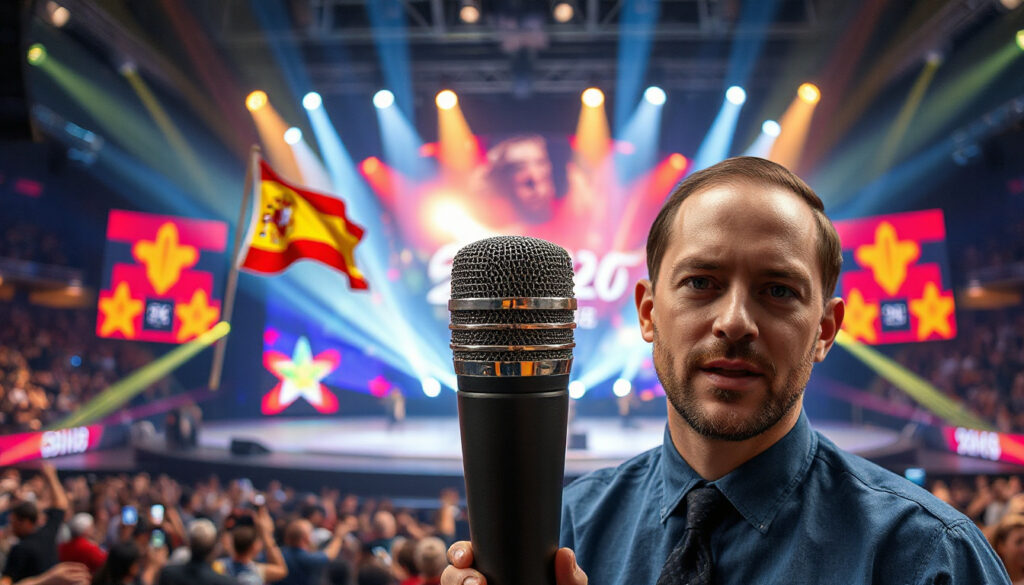Spain’s Eurovision 2026 Withdrawal: What It Means for the Contest and Broader Cultural Impacts
Imagine one of Europe’s most loved events. Spain may leave if Israel takes part in the contest. Spain is a key force in Eurovision. This move may also shift ideas in culture and politics.

Here is a look at the situation and its effects on Eurovision and other events that join different countries.
The Rising Tensions Around Israel’s Participation in Eurovision 2026
RTVE, Spain’s public TV, voted to pull out if Israel takes part. Other nations like Ireland, the Netherlands, Slovenia, and Iceland have made similar votes. Spain is the first of the Big Five to show this stance. Big Five nations give much money and always go to the final.
What has sparked this now? Israel’s actions in Gaza have caused harm and many protests. Spanish leaders see the contest as a stage that should not wash away the real pain of the war.
Main reasons for Spain’s choice:
- Political and humanitarian worries: Spanish leaders and RTVE note the deep suffering of Palestinian people. They feel that Israel in the contest goes against Spain’s values.
- Public pressure: People show their anger in protests. The strong feelings appear during events like the Vuelta a España cycling race.
- Calls for cultural care: Some insist that art events must stand for sound ethics. They do not want the contest to seem to support the harsh policy behind the war.
What It Means for Eurovision
Eurovision is meant to be a show of music and cultural joins. The contest rules keep songs from sending clear political messages. Yet, politics join in when countries fight.
With Spain’s threat and other similar votes, the European Broadcasting Union (EBU) faces a big task.
Expected effects include:
- Money loss: Big Five nations add much cash and viewers to the contest. Spain’s exit may hurt the contest’s funds.
- Less variety and show power: Losing Spain and others may make the event less bright and warm. The spirit of equal sharing might seem lower.
- New ground for political exit: If Spain follows its plan, other nations may choose to skip events where politics play a hidden role.
How the European Broadcasting Union is Reacting
The EBU has put off a final choice. They will talk more and vote in December 2025. This wait shows the need to balance neutrality and strong public moods.
They have also let countries have more time to say yes or no. EBU rules do not punish channels that drop out. This keeps open a path to join back later.
The vote may split opinions. Some members hold tight to a show free from sides, while others see the need to block Israel due to its ongoing actions.
Broader Cultural and Political Implications
Spain’s possible exit joins a wider group of moves that isolate Israel in art and music. For example:
- European festivals and music groups have dropped or warned against including Israel.
- Sports meet protests and boycotts linked to Israel’s acts.
- Many public bodies and governments now make a case against the use of art as a stage for hidden politics.
Spain’s stance might push more nations to fix a firm mark on which teams join global contests. Entertainment now becomes a space where deep cultural ideas are put on display.
What Fans and Participants Should Expect Moving Forward
For fans, artists, and teams, the events may change soon. Watch for these points:
- December 2025 EBU vote: This day will set the path for who goes to Eurovision 2026.
- News on exits: More nations may clearly say yes or no in time with the final vote.
- Possible show changes: With fewer nations, the race to the final may change its form.
- Effect on singers: Both Israeli and boycotting country singers must face new challenges.
Next Steps and What You Can Do
If you care for Eurovision, try these steps:
- Stay aware: Follow news from Eurovision channels, RTVE, and the EBU.
- Join clear talks: The mix of art and state issues is hard; keep discussions kind and open.
- Cheer for art: Enjoy the singers and bands that bring many cultures closer even when views do not match.
- Stand for peace: Support talks that work for settling state fights so art can join hearts.
Final Thoughts
Spain’s clear threat to exit Eurovision 2026 if Israel joins makes us rethink the future of this event. This move pushes organizers, TV channels, and fans to see how art and state ideas meet. The event shows a time when art links with deep social views.
The change matters. It shows how art events now echo the strong feelings of many people. Whether Spain leaves or stays, what happens next will affect how Eurovision marks its time and may change the rules for all such global meets.
If you want to keep up with Eurovision 2026 and the debate on who may join, you can sign up for updates from the European Broadcasting Union and networks like RTVE. Watch in on official news through Eurovision’s website and social channels as December comes near.







